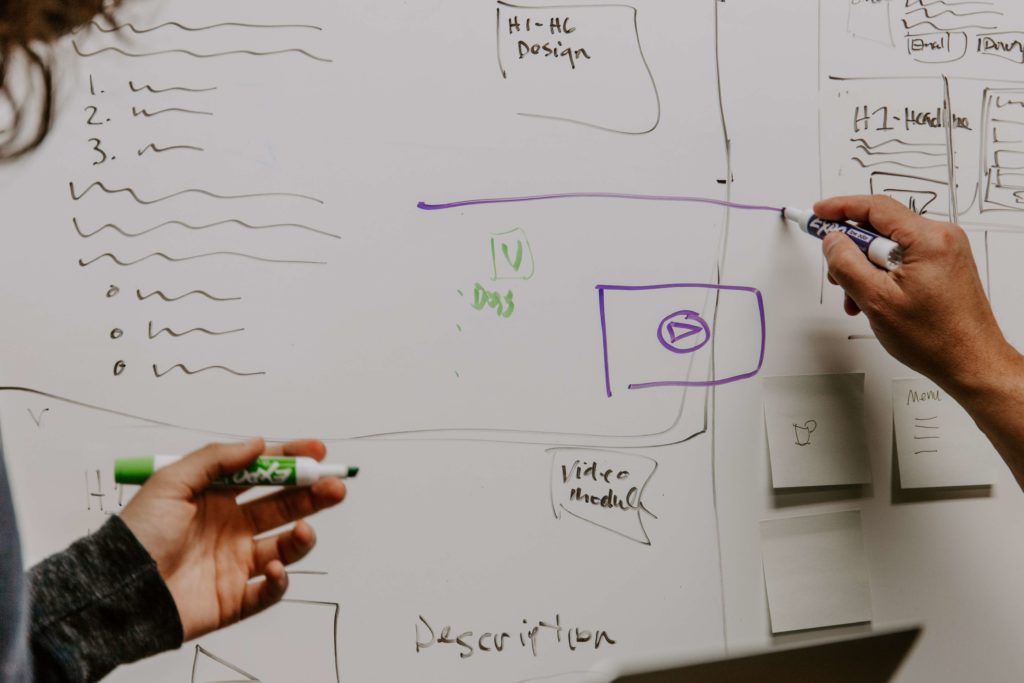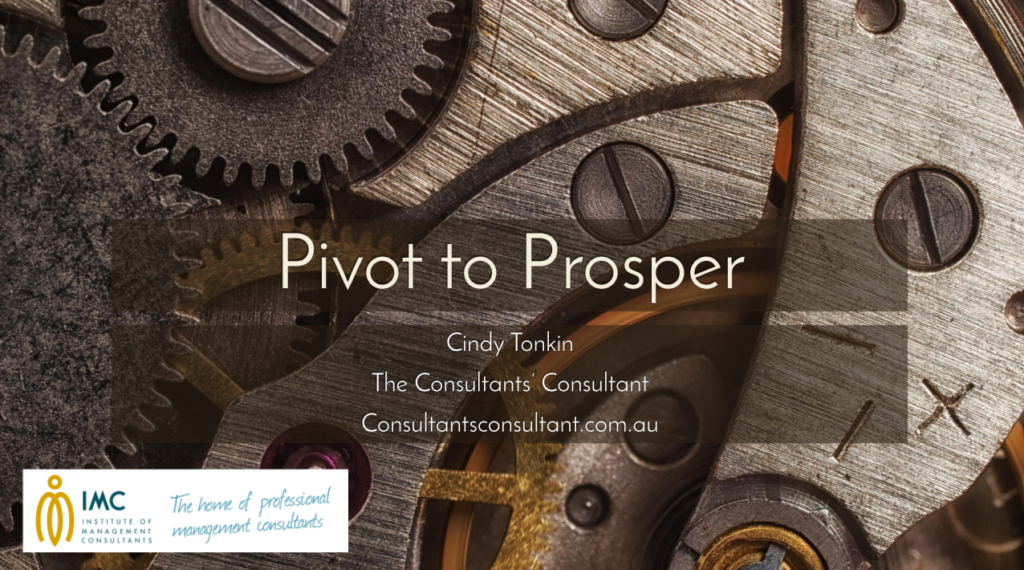

Ben Morley-John is a major force in Smash Delta. Here’s his linked in profile. Here’s Smash Delta’s site and their beautiful research on Smart Cities.
Find the podcast on
In this episode Ben and I cover:
- how Smash Delta blends capability to make integration faster (and which capabilities they think are important)
- the key elements for a great data scientist
- why ego is catastrophic in this industry
- why he’s not that excited about conferences anymore and what he thinks needs to happen to make it better
- the problems of consultants on their high horses, using impenetrable jargon and creating complexity (and how to get over it)
- Ben’s brain hack: Genius Foods
- the best way to learn fast, get respect and cut through the crap quickly
Ben Morley-John’s interesting side links
Definition of inimitable: so good or unusual as to be impossible to copy; unique
Ben sits on the board for Hope for Sydney , which helps people find places to volunteer: go check it out.
Here’s Heal the World, the Michael Jackson song we allude to:
TV shows
- Seinfeld
- Friends
- The Good Place (and the Good Place podcast)
- The Handmaid’s Tale
- Big Little Lies
- Stranger Things
- 30 Rock
- Arrested Development
Keeping up
- The inverted pyramid and my version of it: the Complex Insights Explainer Tool. Liz Moore talks about this in her podcast.
- Genius Foods: Become Smarter, Happier, And More Productive, While Protecting Your Brain Health For Life
- Dataclysm: Love, Sex, Race, and Identity–What Our Online Lives Tell Us about Our Offline Selves
- Australian Financial Review (AFR)
- The Daily
- Hacker News
- Tech Crunch
- Stephen Colbert’s Late Show
- Michael Barbaro New York Times Podcast
Ben Morley-John: The Transcript
Cindy Tonkin: Hi there. This is Cindy Tonkin, I’m the consultant’s consultant. I work with data science teams, helping them work even smarter, faster and nicer. If you’re brilliant and you want to be even better. This is the podcast for you.
Cindy Tonkin: With me today the inimitable Ben Morley John. Ben and I both work at the WeWork offices in Martin place. I have been on him for months to get onto my podcast and I finally trapped him into a room. Ben is now going to tell us a little about Smash Delta which is his new adventure in business.
Ben Morley John: Yes. Smash Delta. What are we? We are a data strategy consulting firm. We bring it together. Commercial strategy, think traditional management consultants. Science to everything under the sun, data science, mathematics, et cetera. And design, making things pretty accessible and exciting. We can do it in all the colours of the rainbow.
That’s the offering and the idea is that we’re here to short circuit a lot of frustration and inertia that’s been going on in the industry. So jumping into big organizations, helping them understand what this whole data science thing is, how it fits together, and actually bringing along engineers and scientists and strategists and designers to actually execute prototypes and to bring it to life.

A launchpad of excitement
They use that as a launch pad of excitement and a proof point to then develop and deliberate and to deliver a strategy from there.
Ben Morley John: They use that as a launch pad of excitement and a proof point to then develop and deliberate and to deliver a strategy from there. So that’s the idea.
Cindy Tonkin: You recently had some Herald coverage.
Ben Morley John:Yes. We’re in the Sydney Morning Herald a week ago and hopefully in The Age, soon which will be fun. That was leveraging some of our past experience in future transport, public transport analytics to just do a shot across the bow to government and city planners to say, hey, there’s all sorts great stuff you can do with open data.
In this state. We’re spending $50 billion on public transport works and we’re using survey methodologies to drive a lot of that analysis and there is all this great data out there that we could be leveraging to make our decisions too.
Cindy Tonkin: Yes, and of course I have just been playing with it. You can go to their website. you can play with it and find out where the best suburbs to live in terms of how long it takes to get there, how much it costs you rent. All of this data is in beautiful simulations. It is pretty.
Ben Morley John: We’ll be bringing it out in 3D soon. I’m sure.
Cindy Tonkin: Yes. Wouldn’t that be cool. Holograms?
Ben Morley John: Yes holograms. Why not?
Cindy Tonkin: Can you do something dating apps?
Ben Morley John: We try to stay away from the creepy side of data analytics.
Cindy Tonkin: It’s not the creepy side of data analytics. It’s just numbers.
Ben Morley John: You’ve heard of Cambridge Analytica, right?
Cindy Tonkin: Exactly. I’ve also read Dataclysm which is one of the guys who also founded okcupid. Have you not read that?
Ben Morley John: No.
Cindy Tonkin: So investing analytics. Because he owns the company, he has analytics on all the background, and this is how many emails you have to send, the best question to decide whether or not you get on. Really cool stuff.
Ben Morley John: Okay. Yeah, I’ll add that to my notes.

Great data people
This number smells funny. You need that kind of thinking right at the extract transform load data or simply data creation level.
One of the big learnings with sound in data science is that you need, let’s call it domain knowledge. This number smells funny. You need that kind of thinking right at the extract transform load data or simply data creation level. Whereas if those things are separated, you’ll have a bunch of people that are really great with numbers but might not really understand the business problems or the domain. Call it public transport, call it retail, they might not understand that enough to actually sense check what they’re producing. And by that point it’s too late.
Cindy Tonkin: So when you are recruiting these kinds of people and as you probably will be doing I imagine for Smash Delta as well, what do you look for?
Ben Morley John: Friendliness and attitude.
Cindy Tonkin: Okay. Talk to me more about that.
my priority is getting the people in the room to come to the right answer. Not for one dude to be the smartest person in the universe. But for that team as a collective to get to the best outcome and answer the fastest

Recruiting
Ben Morley John: I’m a bit of an optimist when it comes to people and my priority is getting people in the room that are super friendly, not defensive, open to challenging ideas, but also open to being challenged themselves.
Because my priority is getting the people in the room to come to the right answer. Not for one dude to be the smartest person in the universe. But for that team as a collective to get to the best outcome and answer the fastest. And to do that, you have to have people that are relaxed, that are happy to challenge ideas but also friendly and can check their ego at the door. That’s massive for us.
Ego is catastrophic for this industry.
Ego is catastrophic for this industry. So that’s the first big barrier. If there’s a PhD who has been published at the Harvard Business Review, has worked for a sexy tech startup, but has a massive attitude, he or she will be more destructive to my business than a bunch of decently talented people with a great attitude.
Cindy Tonkin: Beautiful. So you want friendly and attitude. They kind of go together?
Ben Morley John: Yes. Friendliness is just the idea that they’re not going to talk down to people in their team or talk down to clients. A lot of our work is really deep and integrated with client analysts. Not just talking with the senior people but working right at the ground level too. So, you’ve got to be friendly. You can’t be arrogant. Then the attitude side of it is just the attitude that I’m just going to give it a crack or I’m just going to keep going. I’m not going to rely on my own intelligence. I am keen learn new things.
Cindy Tonkin: Learning new things seems to be a constant when I talk to data science leaders. Basically, that’s one of the bottom lines. And curiosity but not about just anything, about new things and things that are relevant to the problem.

Learning new things
Ben Morley John: I think the biggest misnomer in the industry is the data science expert or someone who claims to be the panacea for all your data science problems. That’s such a load of crap. This industry is changing every second. Sure, Watson is coming up with some great stuff, but so is a 14-year-old kid in Czechoslovakia in his basement building a new algorithm.
If you are not connected into these communities, you’re going to miss out on a lot of ideas
If you are not connected into these communities, you’re going to miss out on a lot of ideas. I think that is a foundation of our business. Because we’re not flinging up product, so to speak, our technology can flex and does flex every day because we’re constantly pulling in new open source technologies.
Cindy Tonkin: So how do you keep up. What’s your professional development path? Who do you subscribe to? You listen to? Who do you follow?

Professional development
Ben Morley John: So what the way we solve it at our company is that I want to make everyone in our company a thought leader or an expert in their own field. No one’s just going to be an executer. They’ve got to own a little space of this l frame or landscape, whatever it is. And they have to be the expert at it. One thing we do every day is have team meetings with the crew and each person has to deliver news from their area.
Cindy Tonkin: Okay. So, you leverage. Essentially you don’t have to do anything except bring one piece. That everybody brings one piece, and everybody learns something new.
Ben Morley John: Yes. I am traditionally a management consultant, so I’m reading the AFR, figuring out the big market movements and changes that are going on. Another one of us is doing a lot of the hardcore AI infrastructure tech side of things and another one’s doing more of the design visualization side of things and between us where we’re teaching each other what’s going on. That’s a small example.
Ben Morley John: In terms of things I’ve read, AFI every day I unfortunately have an addiction to US politics. So, I listened to that. It’s not particularly helpful for my industry. I listened to the daily every day, which is the Michael Bulbar New York Times podcast. I sometimes read Hacker News, tech crunch. Those would be probably the main things.

Subscriptiions and addictions
Cindy Tonkin: Are you addicted to any particular YouTube channels?
Ben Morley John: Yes. The late show Steven Colbert. I don’t think I’ve missed an episode of the late show since the 2016 election. It’s a really weird addiction and not at all related to all I’m talking about.
Cindy Tonkin:That doesn’t matter. It’s always useful. Is there any television you’d want to recommend.
Ben Morley John: TV. Yes, Handmaid’s tale. Great. Really enjoyed that. What else have I enjoyed? Big little lies.
Cindy Tonkin: I read the book I haven’t seen it.
Ben Morley John: Really good. My wife got me into it. it’s really good. It’s HBO. You go on Foxtel. What else? Stranger things, love that. Old school, my Favourite TV show in the world is 30 rock. 30 Rock and Arrested Development are our greatest television shows ever made.
Cindy Tonkin: You’re too young for Seinfeld?
Ben Morley John: Too young, but also friends had a bigger presence in New Zealand. I speak to people in Australia and Seinfeld was like the thing that was always on almost every night of the week on Free to Air TV. Friends was on every night of the week.
Cindy Tonkin: There’s some years between you and me, so in time I probably just watched both. So, I should ask about work conferences. Are there particular conferences you like to follow or go to?
Ben Morley John: I’m of two minds about conferences. When I was in a consulting firm, I went to a bunch and I found them saturated with people trying to flog stuff. Sponsors basically just pitching, give themselves a high five.

Conferences: the interesting and the salesy
What I look for in conferences is clients that I can build a relationship with. But also, just genuinely interesting stuff. Unfortunately, a lot of what I’ve seen so far in Australia is really salesy. Hasn’t been super innovative. And there are definitely exceptions to that, but I’m not super sold on conferences at the moment. I’m really hoping that there are going to be some good ones coming out there.
If you are in a startup or just for your own professional development, it’s a rite of passage that you’d have to at some point find yourself on a stage at some conference speaking somewhere. Full disclosure, if you go to my LinkedIn profile, my profile picture is me standing on a stage at the future transport summit, the Transport for New South Wales Summit speaking. So, it’s a bit hypocritical. But for us, I would love to see conferences in Australia actually evolve into less salesy stuff. More interesting, useful information that people can use actually feel empowered by.
Cindy Tonkin: So have you part of the IAPA – The Institute of Analytic Professionals? I interviewed Shailendra Kumar and by the time this comes out, his will be on my site. He talked about that they have a one-day conference once a year and it’s packed with really interesting stuff.
Ben Morley John: I think that’s probably one of the exception conferences that I went to in Melbourne. Where they actually had a bunch of people talking about real stuff they were doing. If we’re talking about the same one, that was pretty good.

Interpreting body language
Cindy Tonkin:So asking different questions.
Ben Morley John: Very quick question. I noticed we both got our arms crossed.
Cindy Tonkin: I’m just matching you.
Ben Morley John: Is that always a defensive thing? Sometimes it’s just comfortable. I feel like everybody’s overreading people’s body language and if you’ve got your arms crossed, it’s always seen to be a defensive thing.
Cindy Tonkin: When I teach about body language and stuff like that, its look for constellations. This by itself, having your arms across, is not an issue. I could be cold. I could have a neck problem. It could be hundreds of things.
Ben Morley John: I could just like resting my arms.
Cindy Tonkin: You could just be comfortable. But if you’ve got that and leaning back and frowning and I’m not going to be bothered, this is bullshit. That’s secret one.
Ben Morley John: I really hope my comments made it to the cutting room floor.
Cindy Tonkin: I was going to ask you a different question. Any hacks, any productivity hacks, any ways of working smarter?
Ben Morley John: If you have any, please send them to me. Productivity hacks. Okay. Food is the one.
Cindy Tonkin: We just have a conversation with Ben. The Balsamic vinaigrette cost $1 million and I tell him he should go to the supermarket more often.
…what you’re consuming throughout the day and how you consume it, has a massive effect on your productivity, focus…
Ben Morley John: I need to go to supermarket when I get the out. Fair enough. The big one I’m on at the moment is the idea that what you’re consuming throughout the day and how you consume it, has a massive effect on your productivity, focus, et cetera. A lot of that comes back to carbohydrate troughs. How much do you eat? and when does it, you make you snooze in the afternoon?

Productivity: peaks and troughs
I find if I eat in a bad way, you’re subjecting your brain to the kind of peaks and troughs and sugar highs and you end up just using caffeine to level out your concentration. But then you’re giving yourself this other big control. So, my productivity hack is a book called Genius Foods. Just came out this year by a guy called Max Lugavere.
Cindy Tonkin: Okay, I’ll look it up. I’ll put it on the website.
Ben Morley John: He is not a doctor. He worked with a bunch of doctors. He took a horizontal cut across a whole bunch of different research verticals and figured out what was wrong with our understanding of food. Then how to get it right and what the impact of that is on your productivity.
Cindy Tonkin: That’s your hack. You’re not doing it yet. But that’s where you are going.
Ben Morley John: That’s where I’m going. I’m a work in progress.
Cindy Tonkin: I think we should all acknowledge that we are works in progress. The other option that people often tell me is just get eight hours sleep. Apparently, it makes a difference. I don’t function without eight hours sleep, so I get eight hours sleep. That’s the secret of my success. What about stuff like note taking hacks or learning hacks or the being on time hacks? You have any of those?

Managing time
Ben Morley John: So first thing for us and our team is we have a meeting at start of day, bang on the dot. If you are late for work, you are also late for the meeting and it’s very obvious. So that’s a good incentive just to get in on time.
Another one is that a big part of my job is actually having sales conversations with people where you do need to track time. It’s your job to run the conversation. If it goes off track, off topic or over time, you don’t get to the point that you want to in the conversation. So just being disciplined around tracking time generally is really important. And not being afraid to channel conversations at the right speed and trajectory that you need them to go.
Cindy Tonkin: It would be interesting to unpack the how of that. One of the things that I do teach How I have more effective meetings. I am always looking for people to give me some even smarter ways of explaining that. How do you keep things on track? If it does go off track, how do you use going off track to come back? As an improvisor I can link anything to anything. So, they take it off track. Then it comes back to, what you’re talking about is that we consume and blah, blah blah blah, and it’s bring back to the topic.
Ben Morley John: Yes. It’s really, it’s particularly tricky to do that when you’re building relationships with people and you want to be nice.
Cindy Tonkin: Yes. Rapport is hard.

Building rapport
Ben Morley John: It’s really hard being comfortable enough to say, hey, this is great. Let’s just jump back on this other point. We can chat about that in a second. I think that’s something that all of us struggle with.
Cindy Tonkin: In a way that isn’t kind of, doesn’t sound like you’re chiding them for having gotten off the point.
Ben Morley John: It’s tricky. Our approach to the way our brand is built, the way we sell, execute projects is the actual output is only 50%. The other 50% is the experience. How people feel. How empowered they are with the process, by the process. Did they learn something new? It’s so important that we get that dynamic right. Otherwise, all the great work we do will be tossed out with bathwater.
Cindy Tonkin: Exactly. The principle is if you are not in rapport with the client, then they’re not going to tell you stuff. They are not going to share anything with you. They are going to just neglect to mention having a meeting without you, et cetera, et cetera. Rather than being integrated because you are part of a team. Given how you described the way you work, you want to be seen as part of it. Not seen as the seagull that flies in and shits all over everything, takes a huge fee and leaves.
Ben Morley John: I haven’t heard that. Maybe I’ve been called that behind my back. That’s the Seagull Consulting joke is that they come and shit on have everything and pinch your chips.
Ben Morley John: Yes. That’s one of the fundamental perceptions that we’re wanting to change with how we work. Which is actually diving in, getting down in the mud with your people, executing a joint project, collaborating. Not doing the traditional pull the curtain back at the end of the day and say, here’s our finished product. See you later Guys, good luck with that. But actually working with them down in the trenches.

Explaining complex things
Cindy Tonkin: So we have kind of touched on this, but then you and I had some other ideas about things, explaining complex things to data naive stakeholders. What do you want to say about that?
Ben Morley John: My challenge to everyone in this industry is if you can explain hyper complex data science techniques and tools and processes, in a simple and accessible way, then you’re not as good as you think you are.
Cindy Tonkin: So it’s essentially one of those hidden criteria for what makes a good analyst. Not just this kindness and attitude. Also able to explain complex things.
Ben Morley John: There is a genius who can a dark room and build the best convolutional neural network you’ve ever heard of. But at the end of the day, the value has to be in being able to step back from that, break it down into its high level components, used metaphors, put it in a story and package it up and explain it and sell it to someone. I don’t want our industry to be associated with vicious nerds and arrogance.
I don’t want our industry to be associated with vicious nerds and arrogance.
Cindy Tonkin: That’d be a great name for a consulting firm. Vicious Nerds & Arrogance.
Ben Morley John: VN & A. Yeah, I’m going to trademark it now.
That is one thing that really disappoints me about this industry. When I was in the consulting firm, I sat on the client side where we would collaborate with people selling us analytics products, or who had big data stacks and you would quickly sort the great people from the terrible people by who would just dump jargon and buzzwords on you. I see that as a weapon. As a way to use information asymmetry to make yourself look smarter, to confuse your clients and to throw up a bit of a smoke and mirrors.
…you would quickly sought the great people from the terrible people by who would just dump jargon and buzzwords on you. I see that as a weapon … to make yourself look smarter …smoke and mirrors
…the root of a lot of the problems we’re seeing in the analytics industry in Australia.
That is the root of a lot of the problems we’re seeing in the analytics industry in Australia. People are on their high horse, dumping other people in jargon and buzzwords and complexity – and that’s not going to move things forward for Australia. You’ve got to be able to break it down into an accessible story, not be arrogant, be accessible, and get stakeholder buy in and engagement.
Buy in and engagement
I haven’t answered your question. How do I do it? I try to tell a story. I use an example, a link.
Cindy Tonkin: Out of the McKinsey Inverted Triangle? The pyramid?
Ben Morley John: I know McKinsey likes frameworks. I haven’t seen that one.
Cindy Tonkin: Okay. Couple of people have mentioned that one.
Ben Morley John: I like always telling a story. Using a real-life example. Directing it to some commercial value. Why does this actually matter versus, Oooh that’s very pretty and I see lots of things flying around a page, versus this is actually going to make my company better. This is going to make my customer’s lives better.
Cindy Tonkin: It necessitates understanding the context and getting the client to share what they actually want. What the problems and challenges are and finding the pain.
Ben Morely John: Absolutely. You have to build that trust with them, where they are open enough to talk about that.
Cindy Tonkin: Exactly. Which goes back to what you talked about before. Being friendly and not having a massive ego. So that people will trust you. One of the big things in mentioned a number of podcasts, because I’ve been read lots about it, is psychological safety. It’s a big thing in leadership and management.

Psychological safety
How do we create intense psychological safety so people can literally put their hand up and go, I don’t understand, or I’ve got an idea, or this is fucked up? Whatever it is. For consultants there’s an extra barrier, and once we get that psychological safety, the client feels they can say you’re using a word I don’t understand. They can say this is a real problem for me, and don’t feel like a dumb-dumb when they say that.
Ben Morley John: This is one of the biggest issues in industry. The idea that people are not comfortable asking dumb questions. The reality is if someone’s asking a question or has a question rattling around their mind, 50% of the room does as well. But when they are sitting there thinking, oh, I’m so dumb. I don’t want to put my hand up. Whether that question gets asked or not, comes down to either A, the bravery of that person or B, the environment that they’re in.
Are they in a cultural environment that encourages dumb questions? Consulting firms up filled with super smart people. But there’s always a lot of intellectual fear around asking a silly question. I would contrast that with a hero of mine who, actually is my wife. She is an occupational therapist. She works with a lot of doctors.
Her brand, her calling card, is just shamelessly asking dumb questions and not giving a shit. She does that better than anybody else I know. She learns so fast and gets so much respect, and cuts through the crap so quickly because she just puts up her hand and said, I don’t know. I’m sorry. I just don’t understand what you’re talking about.
She learns so fast and gets so much respect, and cuts through the crap so quickly because she just puts up her hand and said, I don’t know. I’m sorry. I just don’t understand what you’re talking about.
Cindy Tonkin: How does A connect to B and why?
Ben Morley John: Yes. Then people always come up to her afterwards and say, I’m so glad you asked that question. She’s got this kind of shamelessness, and she just doesn’t care about looking silly. That’s a culture that I’m trying to channel more and project more into my industry and strategy in analytics.

Channeling shamelessness: asking questions
Cindy Tonkin: Its very nice. Essentially part of it is how you set that environment in the meeting itself. You can create a safe place in meeting, there’s hundreds of tricks that people use. One of them is, explain it to me like I’m five.
Ben Morley John: Right. There’s two ways I do that. One is if I’m running a client base meeting. I say there are no dumb questions. I’m ask, ask and interrupt. We like being interrupted in our meetings because we want to make sure people go, Hey, I’m not sure I quite understand that content. That way by making them comfortable, we get valuable feedback on what we’re doing.
The second thing is, it depends on what kind of meeting we’re in and it’s taken me a long time to feel comfortable getting to this point, my aim is often to be the dumbest person in the room. I’ll try and be the dumbest person in the room because, and by that I don’t mean literally being the dumbest person.
If I am the one with the client asking the silly questions of my data scientists in our technical team and I’m saying, I’m sorry, I don’t understand that. Oh, that’s quite confusing. Wait, can I just confirm you mean that way? Then suddenly I’m with the clients and they are going Oh yes, that’s confusing too. I’m setting the standard that it’s okay to ask questions. I’m relieving the pressure off of me having to come across as ultimate guru of everything in a meeting. Which of course is crap.
Cindy Tonkin: Yeah. Well, I’ve met you. I know. (laughing) I’m not as much for advanced, very smart. That’s not what it’s about. But I think partly you’re right, is it that you’re essentially making it safe by, by throwing yourself in front of the bus on behalf of the client. Which means that they can then look smart when they go Ben you missed it. He said that on the previous page. I don’t have to ask that.

A new working culture
Ben Morley John: Absolutely. It’s trying to create that culture around a project which is something you want everyone talking to Am I serving myself? Or am I serving the project? And if you’re serving the project. You can take your ego out of the equation, take your own admissions out of the equation. What’s going to help us get this thing moving? What’s going to help us get to the fastest, best answer. That mindset is really, really powerful. That’s why we’re a data analytics firm. Part of that is trying to embody and demonstrate a new working culture.
…if you’re serving the project. You can take your ego out of the equation. …part of that is trying to embody and demonstrate a new working culture.
Cindy Tonkin: Exactly. It’s just constant There is so much. We’re coming close to the end; I’m having so much fun. We can do it again. We’re just next door to each other in the office. What’s your favourite charity?
Ben Morley John: I would be remiss not to give a shout out to the charity that I sit on the board of called Hope for Sydney. It’s a voluntary organization. It links up with a whole bunch of people in the community who are interested in volunteering and pairs them up with causes that need volunteers. It’s a surprisingly fragmented and stuck model.
It’s very hard for organizations to feel comfortable opening up to volunteers because they don’t know what they’re going to get. Then it’s very hard for volunteers to know where to volunteer. Hope for Sydney have some focus areas, particularly people sleeping rough and certainly we do a lot of work there.
Also with the asylum seeker community out in western Sydney. So, going out, working with those communities, getting to know the people, having barbecues with them and go to EAD festival doing indoor soccer, that kind of stuff. You meet some amazing people. So, hope for Sydney.

Charity: Hope for Sydney
Cindy Tonkin: I will definitely link to that. People are doing amazing things. One of my favourite TV shows at the moment is the good place. I haven’t watched season three yet, don’t spoil it on me. If you haven’t seen it watch it. But the good place podcast, they literally say what’s good and it’s fabulous.
You hear about all these fabulous things. This charity is good that charity or sitting the sun and playing with my dog or you know, and say well what is good? Hundreds of things. If you haven’t watched good place, watch the good place on Netflix. Fabulous.
Ben Morley John: It’d be sad if I didn’t give this just a slight political bent for a second. The way our politics has gone recently, not just in America but in the UK with Brexit and all over has been pretty awful in my perspective.
But it has helped ordinary people to sit back and say I can’t rely on my government to be a moral leader anymore. You know what, I’m just going to actually get out there and do something myself. I think you’re seeing a lot more people getting up off the couch and either running for office, or making difference, or helping in all sorts of little ways. They’re not sitting and waiting for their taxes to do morally great things. They’re going to go out and do it themselves.
Cindy Tonkin: I think you’re quite right. I work with a very wonderful man named Paul Mitchell. He is a leadership trainer at the human enterprise. He has a thing. He says, don’t aspire to be a great leader, aspire to do great things. And you’re right. It’s that. Just do one thing. Go and support a charity. Go and volunteer somewhere. Go and run for office. Go and do this because, the outside’s not going to do this for you. To make a change, be that change.
Ben Morley John: I feel like there’s a Michael Jackson Song in there somewhere.
Cindy Tonkin: Yes, I don’t know if we’ve got the rights to actually do Man in the mirror or something like that. Heal the world, make it a better place.
Ben Morley John: There’s the improv side coming out – and the singing.
Cindy Tonkin: So it has been great Ben Morley John having you on my podcast. Can we do it again?
Ben Morley John: Yes, please I’ve had fun.
Cindy Tonkin: Like every week for the rest of the year. We just talk about improv and television.
Ben Morley John: Yep. Take it global. Yeah. Go on the road.
Cindy Tonkin: Thank you very much. I’m going to press stop.
Speaker 5: This is Cindy Tonkin. I’m the consultant’s consultant, and you’ve been listening to smarter data people.
This is part of what I do to understand how it is that data scientists can be more effective in the workplace, smarter, faster, and nicer. And if you have a team and you’re finding them harder to manage than they could be, if you’re constantly trying to squeeze more out of your budget and out of the time, and if you’ve got stakeholders or they’ve got stakeholders who are less than happy, sometimes maybe a lot more than some times, it can be really annoying and it can make you feel incompetent.
I can help you help them get to the important problems faster, target the wasted time, and save you time and money, and ultimately delight stakeholders so that you can feel competent again. It’s such a good feeling. Talk to me.






